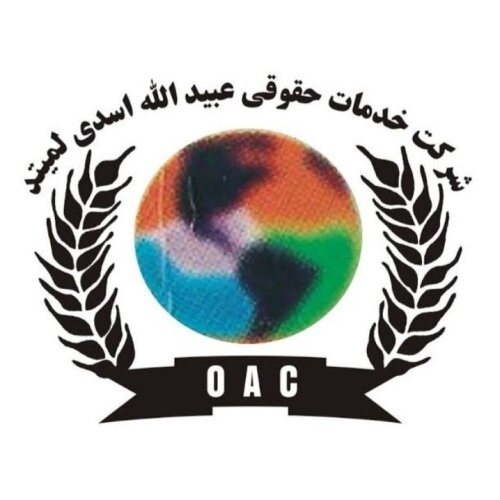Best Faith-Based Law Lawyers in Kabul
Share your needs with us, get contacted by law firms.
Free. Takes 2 min.
List of the best lawyers in Kabul, Afghanistan
About Faith-Based Law in Kabul, Afghanistan
Faith-Based Law in Kabul, Afghanistan predominately refers to the application of Islamic law, often known locally as Sharia law, which is integrated into the country's legal system. In Afghanistan, the legal framework is heavily influenced by Islamic principles, with many civil, criminal, and family matters adjudicated under Sharia guidelines. Due to Afghanistan's cultural and historical context, Faith-Based Law plays a significant role in regulating societal norms and behaviors, impacting everything from business practices to family relations to ethical conduct.
Why You May Need a Lawyer
Individuals may require legal assistance in Faith-Based Law for a variety of reasons, including:
- Marriage, Divorce, and Family Matters: Navigating the complex processes of marriage, divorce, custody, and inheritance in accordance with Sharia.
- Business and Financial Disputes: Resolving commercial disputes or ensuring that business practices align with Islamic principles.
- Criminal Cases: Defense or representation in cases where an individual faces charges under Sharia-based legal provisions.
- Women's Rights: Understanding and advocating for rights in matters such as inheritance, education, and employment under Islamic law.
- Property Disputes: Addressing conflicts over property ownership or sales governed by faith-based laws.
Local Laws Overview
In Kabul, the legal system embraces a hybrid of civil law and Sharia, with significant emphasis on the latter for personal status laws and many civil matters. Key aspects include:
- Family Law: Predominantly governed by Sharia, regulating marriage, divorce, alimony, and inheritance.
- Criminal Law: Includes punishments that comply with Islamic principles; serious offenses may be adjudicated with hudud penalties.
- Commercial Law: Business transactions must adhere to Islamic economic principles, such as prohibition against riba (interest).
- Judicial System: Courts may apply civil codes, but judges often have significant latitude to interpret Sharia.
Frequently Asked Questions
What is Faith-Based Law?
Faith-Based Law, in the context of Kabul, refers to the legal practices and regulations derived from Islamic Sharia principles.
How does Faith-Based Law impact family matters in Kabul?
Family matters, including marriage, divorce, and inheritance, are deeply influenced by Islamic law, often meaning traditional processes need legal guidance.
Is it possible to challenge a decision made by a religious court?
While challenging a decision is possible, it can be complex. One should consult with a lawyer familiar with both civil and Sharia-based legal contexts.
How are women's rights protected under Sharia in Kabul, Afghanistan?
Women's rights under Sharia focus on welfare, inheritance rights, and divorce regulations but are often mediated through cultural interpretations, prompting legal support.
What role does the government play in Faith-Based Law?
The Afghan government acknowledges Sharia as a foundation of its legal system, harmonizing it with civil laws enacted by the state.
Are there differences in the application of Sharia across Afghanistan?
Yes, interpretations and applications of Sharia can vary significantly, influenced by local customs and judicial perspectives.
What legal options are available in the case of business disputes?
Legal recourse is available through civil courts and arbitration, influenced heavily by Islamic principles for business ethics.
Can foreigners access legal support for Faith-Based Law issues in Kabul?
Yes, foreigners can access legal counsel familiar with both local and international law, particularly related to investments and expatriate life.
How do I find a qualified lawyer in Faith-Based Law?
Reaching out to legal firms that specialize in Islamic law or local bar associations would be beneficial.
Is arbitration a viable option in Faith-Based Law disputes?
Yes, arbitration is often used in commercial disputes, reflecting Sharia’s emphasis on negotiation and reconciliation.
Additional Resources
Several resources and organizations can aid those in need of legal advice in Faith-Based Law:
- Local Bar Associations: Contact for lists of qualified lawyers in Sharia law.
- The Ministry of Justice: Provides information on legal rights and processes.
- Legal Aid Organizations: Some NGOs offer assistance, particularly in family law and women’s rights issues.
Next Steps
If you require legal assistance in Faith-Based Law, consider the following steps:
- Consult with Accredited Lawyers: Ensure they are experienced in the intersection of Sharia and local laws.
- Research and Prepare: Familiarize yourself with basic Sharia principles related to your concern.
- Utilize Local Consulates: If you are a foreigner, your embassy or consulate may offer guidance or references.
Lawzana helps you find the best lawyers and law firms in Kabul through a curated and pre-screened list of qualified legal professionals. Our platform offers rankings and detailed profiles of attorneys and law firms, allowing you to compare based on practice areas, including Faith-Based Law, experience, and client feedback.
Each profile includes a description of the firm's areas of practice, client reviews, team members and partners, year of establishment, spoken languages, office locations, contact information, social media presence, and any published articles or resources. Most firms on our platform speak English and are experienced in both local and international legal matters.
Get a quote from top-rated law firms in Kabul, Afghanistan — quickly, securely, and without unnecessary hassle.
Disclaimer:
The information provided on this page is for general informational purposes only and does not constitute legal advice. While we strive to ensure the accuracy and relevance of the content, legal information may change over time, and interpretations of the law can vary. You should always consult with a qualified legal professional for advice specific to your situation.
We disclaim all liability for actions taken or not taken based on the content of this page. If you believe any information is incorrect or outdated, please contact us, and we will review and update it where appropriate.









